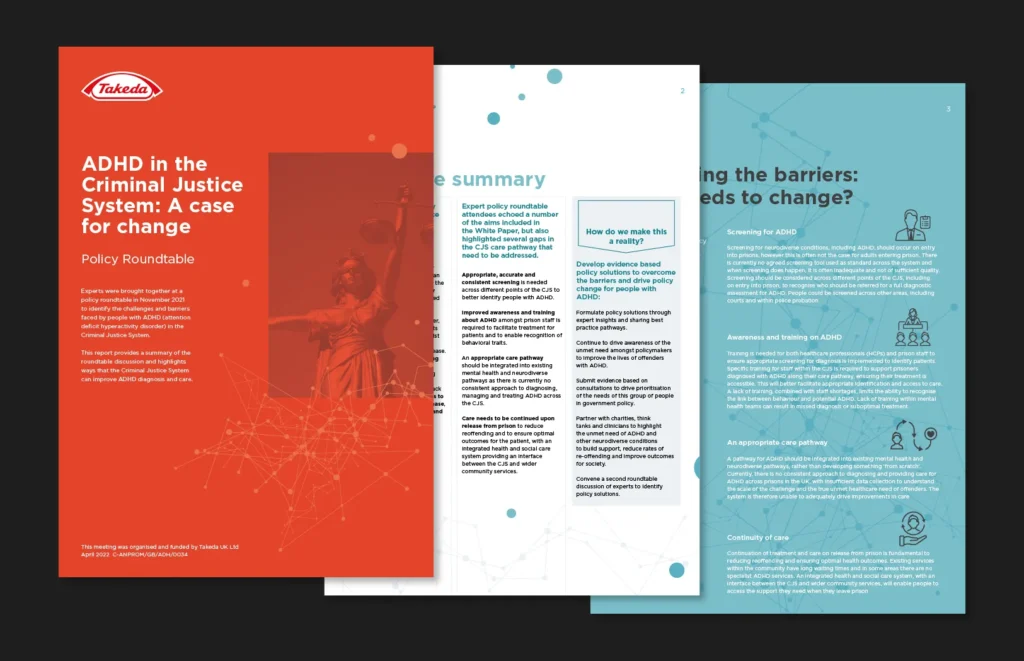


It is estimated that 1 in 4 offenders have ADHD. However, an estimated 80% of prisoners with the condition do not have a formal diagnosis.
In addition to the human cost, the financial cost to the criminal justice system (CJS) of untreated ADHD is estimated at £11.7m annually. If ADHD is managed appropriately there could be a reduction in criminality of 32% in men and 41% in women.
Working with an expert group from across health and the CJS we identified opportunities in the Government’s existing work on neurodiversity to highlight the impact of ADHD on the CJS, to quantify the unmet need and develop practical solutions which could be easily implemented by the CJS.
Through a series of roundtables, joint consultation responses, national media coverage and a workshop at the Modernising Criminal Justice conference, we made the case for policymakers to focus on ADHD as key area for action across the CJS.

Meeting the needs of offenders with ADHD is an increasingly important part of the CJS agenda. A 2021 evidence review of neurodiversity across the CJS identified serious gaps in screening, resourcing and training.
Our work has culminated in a CJS Action Plan being published which will look at the need for a new neurodiversity strategy in the CJS, as well as a new Partnerships Agreements between Justice and Health to reflect the needs of those who are neurodiverse in prisons.